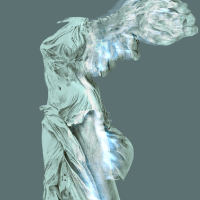
Recommended contact person
What is the right to equal treatment regardless of gender?
According to the Equal Treatment of men and women in employment and vocational training Law (205(I)/2002), men and women should enjoy equal treatment, i.e. they should not be subject to any direct or indirect discrimination on the grounds of sex (cf. sections 7, 8, 9, 10) or due to pregnancy, childbirth, breastfeeding, maternity or illness due to pregnancy or childbirth (cf. section 11).
Equal treatment shall apply inter alia in the following areas:
- Access to vocational training or apprenticeship, including the terms and conditions of the provisions of services for this purpose;
- Access to employment or work position, temporary, full or part-time employment and at all levels;
- The terms and conditions of employment, including qualifications and other terms, conditions and placement, permanency, accession, transfer, removal, detachment or promotion criteria;
- The terms and conditions of dismissal;
- Access to an independent occupation (including the terms and conditions, the access to the required training, the termination of practice etc.)
What is the competent authority?
The Gender Equality Committee (cf. Section 22 of the Law), which is in charge inter alia of:
- consulting on matters of national policy;
- advising on the enactment of legislation;
- supervising the implementation of the law;
- suggesting the introduction of measures for ensuring the equal treatment etc.;
- promotion of equality for men and women;
- submitting or accepting complaints on any relevant issues and forwarding them to the chief inspector etc.
Are there any exceptions to the law on equal treatment?
The law provides for certain exceptions in specified cases/occupations such as:
- Artistic activities where employing a person of the other sex would lead to a significant alteration in the nature of the post;
- Employment in a particular post when the duties of the post include the provisions of services outside of the Republic of Cyprus, in a country where the legislation and culture are such that the particular services may not be rendered by a persons of the other sex;
- Provision of personal services: It is required that for such kind of services persons from both sexes are employed;
- Employment in services of personal nature (i.e. elderly caretaking etc.)
- Employment in the post of warden in women´s or men´s prisons;
- Employment in the Security Forces or private security bodies in certain situations specified by the law;
- Employment of women in underground mining works.
The above information is provided for general purposes only. If you face discrimination on the grounds of gender, we recommend that you seek legal professional advice.













